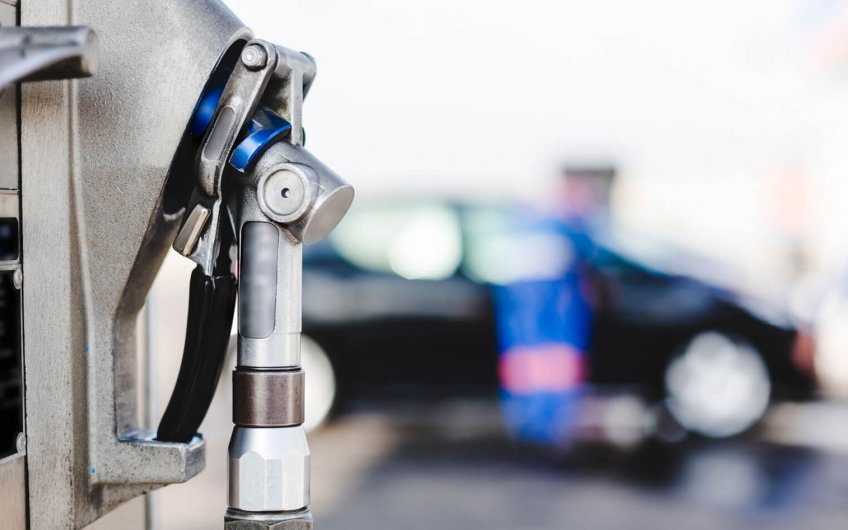
Did you know that refuel LPG in Madrid is becoming increasingly common as a result of the qualities of the product? In fact, its advantages and favourable price over other fuels are leading many drivers to choose it.
Liquid Petroleum Gas is also called AutoGas, GasAuto, or simply LPG internationally, and GLP in Spain. It is the main alternative to diesel and petrol, an alternative fuel used the world over by more than 21 million drivers.
The product is a mixture of butane and propane. It is prepared for use as motor fuel and is governed by the Spanish UNE-EN 589 Standard with varying proportions depending on its use. For example, REPSOL GAS sells AutoGas in a mix of 30% propane and 70% butane for light vehicles, and 65% propane and 35% butane for heavy vehicles.
AutoGas is stored, transported, and distributed in liquid state to be sold across a Service Station Network via a quick and easy way of filling up similar to petrol and diesel.
60% of the LPG sold worldwide comes directly from oil and natural gas reservoirs. The remaining 40% is produced from petrol refining at refineries.
The main benefits we get from this system are savings, lower emissions, lower maintenance and longer lifespan for engines, greater fuel economy, enhanced performance and safety amongst many others.
When we drive an LPG AutoGas powered vehicle we save 45% and 25% on petrol and diesel respectively under the same conditions. You can clearly see the considerable savings it offers, which is especially relevant given the constant fuel price rises in Spain.
Another key point is the positive effect we have on the environment by improving air quality. This is magnified in the areas of the city where pollution is most damaging for our health and most affects our quality of life. Therefore, this type of fuel stands apart due to its extremely low NOx and particle emissions. It is the best placed alternative to make petrol cars more environmentally-friendly.
Moreover, these advantages are leading more and more public authorities to opt for AutoGas as an alternative to traditional fuels, as it is the most effective short and mid-term solution to improving air quality.
LGP fuels increase engine lifespans compared to the use of petrol as the cylinders and engine parts suffer less wear and tear as the fuel creates an even mixture and modulates gas and airflow for cleaner and fuller combustion.
This brings savings on maintenance and also on possible faults, which will not happen as often as in other engines.
In terms of fuel economy, the size of the fuel tank will depend on each vehicle but the greater efficiency of this fuel doubles fuel economy. Some vehicles even add a second tank for this fuel, whilst retaining the main tank to enable the vehicle to run on petrol, diesel or LGP.
The equipment used to adapt vehicles to AutoGas LGP makes use of modern technology which in recent years has led to significant improvements in performance and reliability. In fact, these vehicles now suffer minimal power loss in comparison with petrol vehicles as a result of the improved performance brought on by these advances.
Using fuels such as AutoGas LGP leads to safer driving as shown in studies carried out on the standardisation of the fuel, which must also pass an official vehicle inspection. ADAC, the German counterpart of the Royal Automobile Club of Spain (RACE), even performed safety tests on these fuels.
In the crash test, a collision between a saloon car travelling at 60kph and a parked car featuring a AutoGas LGP tank was simulated. The test showed that using AutoGas LGP, provided it has been correctly installed, is not dangerous for passengers or for potential members of the emergency services. Subsequently, the fire test reproduced a fire on the underside of the vehicle. It found that the pressure relief valves opened when the flames completely enveloped the valve. The resulting direction of flame was downwards and was not held to be dangerous.
The number of petrol stations close to the M30 that supply this type of fuel stands at 68. They are to be found between the Ajalvir and Villaviciosa de Odón areas. In terms of price and opening hours, the cheapest cost per litre can be found at the REPSOL service station at Barajas airport for €0.59 per litre. And the difference with the most expensive petrol station is €.0125 per litre at different filling points for a total price of €0.715 per litre.
To conclude, we can see the benefits of filling up your car with LPG, not just for your wallet but also in terms of vehicle maintenance and lifespan, and safety on the road.